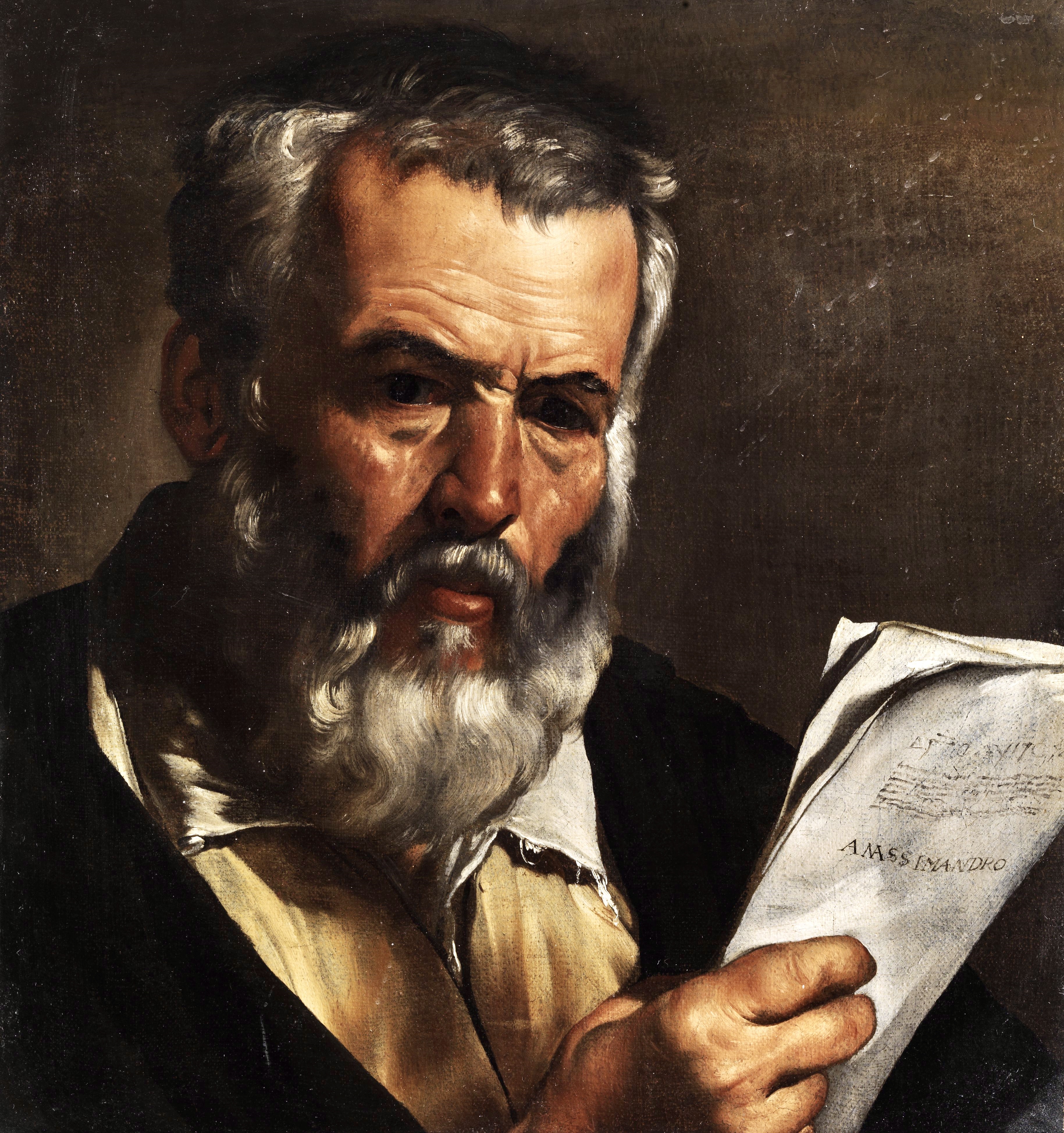
Anaximander
Anaximander (/æˌnæksɪˈmændər/ AN-ak-sih-MAN-dər; Greek: Ἀναξίμανδρος Anaximandros; c. 610 – c. 546 BC)[3] was a pre-Socratic Greek philosopher who lived in Miletus,[4] a city of Ionia (in modern-day Turkey). He belonged to the Milesian school and learned the teachings of his master Thales. He succeeded Thales and became the second master of that school where he counted Anaximenes and, arguably, Pythagoras amongst his pupils.[5]
This article is about the pre-Socratic philosopher. For other uses, see Anaximander (disambiguation).
Anaximander
c. 546 BC (aged c. 64)
The apeiron is the arche
Evolutionary view of life[1][2]
Earth floats unsupported
Mechanical model of the sky
Rain is from evaporation
World map
Little of his life and work is known today. According to available historical documents, he is the first philosopher known to have written down his studies,[6] although only one fragment of his work remains. Fragmentary testimonies found in documents after his death provide a portrait of the man.
Anaximander was an early proponent of science and tried to observe and explain different aspects of the universe, with a particular interest in its origins, claiming that nature is ruled by laws, just like human societies, and anything that disturbs the balance of nature does not last long.[7] Like many thinkers of his time, Anaximander's philosophy included contributions to many disciplines. In astronomy, he attempted to describe the mechanics of celestial bodies in relation to the Earth. In physics, his postulation that the indefinite (or apeiron) was the source of all things, led Greek philosophy to a new level of conceptual abstraction. His knowledge of geometry allowed him to introduce the gnomon in Greece. He created a map of the world that contributed greatly to the advancement of geography. Anaximander was also involved in the politics of Miletus and was sent as a leader to one of its colonies.
Legacy[edit]
Bertrand Russell in the History of Western Philosophy interprets Anaximander's theories as an assertion of the necessity of an appropriate balance between earth, fire, and water, all of which may be independently seeking to aggrandize their proportions relative to the others. Anaximander seems to express his belief that a natural order ensures balance among these elements, that where there was fire, ashes (earth) now exist.[72] His Greek peers echoed this sentiment with their belief in natural boundaries beyond which not even the gods could operate.
Friedrich Nietzsche, in Philosophy in the Tragic Age of the Greeks, claimed that Anaximander was a pessimist who asserted that the primal being of the world was a state of indefiniteness. In accordance with this, anything definite has to eventually pass back into indefiniteness. In other words, Anaximander viewed "...all coming-to-be as though it were an illegitimate emancipation from eternal being, a wrong for which destruction is the only penance". (Ibid., § 4) The world of individual objects, in this way of thinking, has no worth and should perish.[73]
Martin Heidegger lectured extensively on Anaximander, and delivered a lecture entitled "Anaximander's Saying" which was subsequently included in Off the Beaten Track. The lecture examines the ontological difference and the oblivion of Being or Dasein in the context of the Anaximander fragment.[74] Heidegger's lecture is, in turn, an important influence on the French philosopher Jacques Derrida.[75]
In the 2017 essay collection Anaximander in Context: New Studies on the Origins of Greek Philosophy, Dirk Couprie, Robert Hahn and Gerald Naddaf describe Anaximander as "one of the greatest minds in history", but one that has not been given his due. Couprie goes to state that he considers him on par with Newton.[76] Similar sentiments are expressed in Carlo Rovelli's 2011 book The First Scientist: Anaximander and His Legacy.
The Anaximander (31st) High School of Thessaloniki, Greece is named after Anaximander.[77]
According to the Suda:[78]